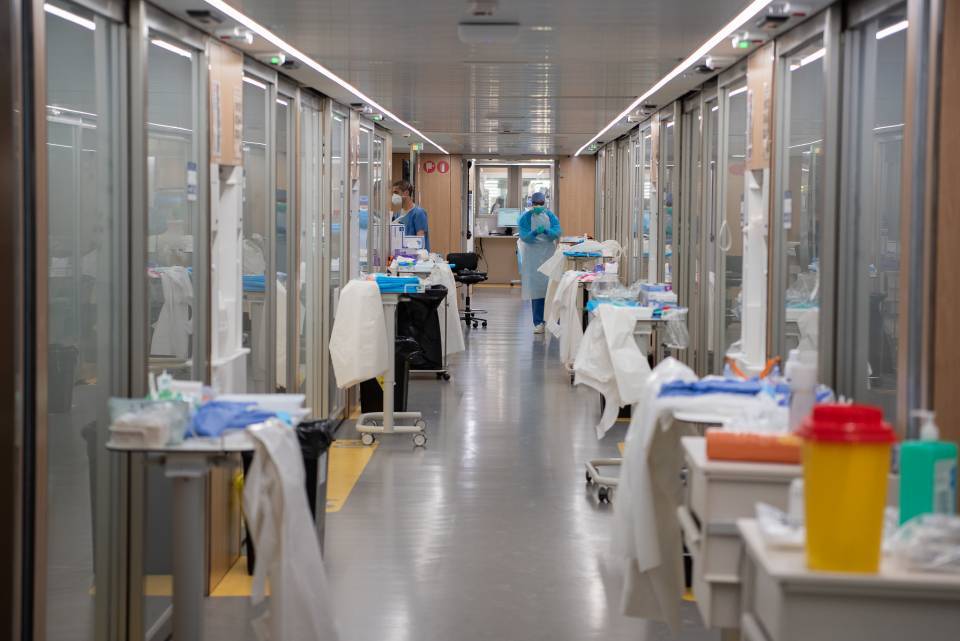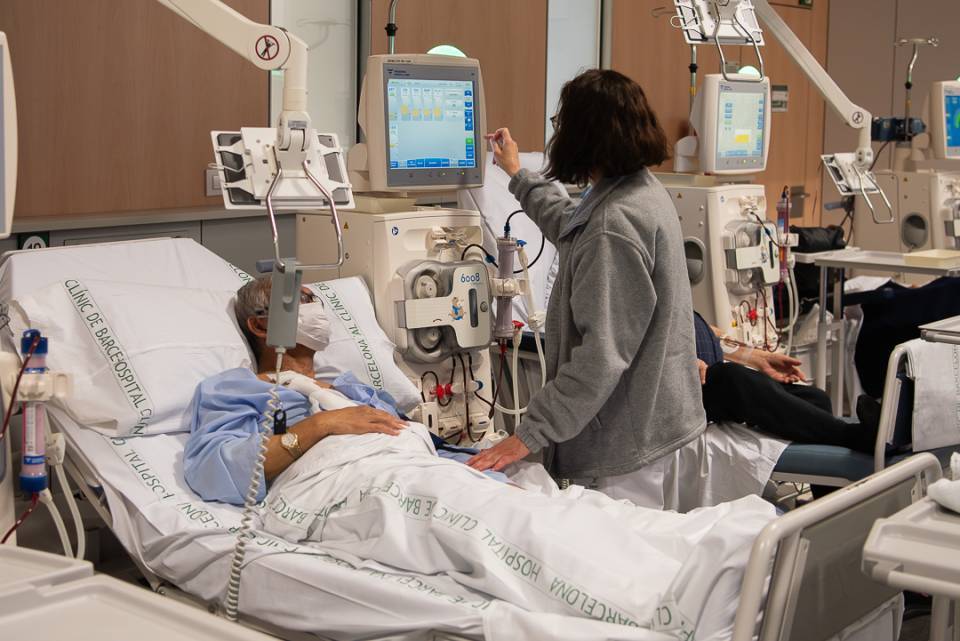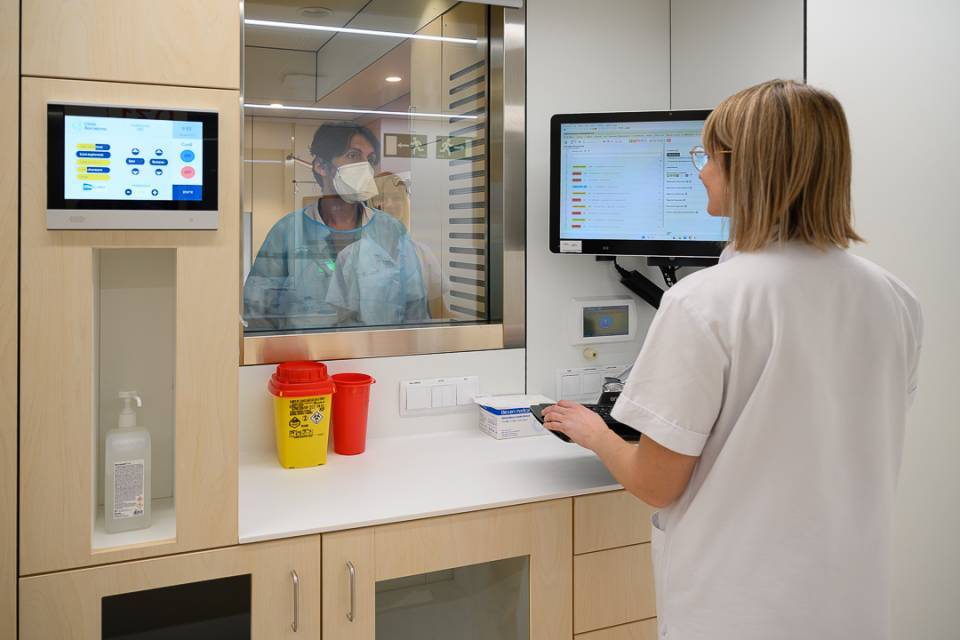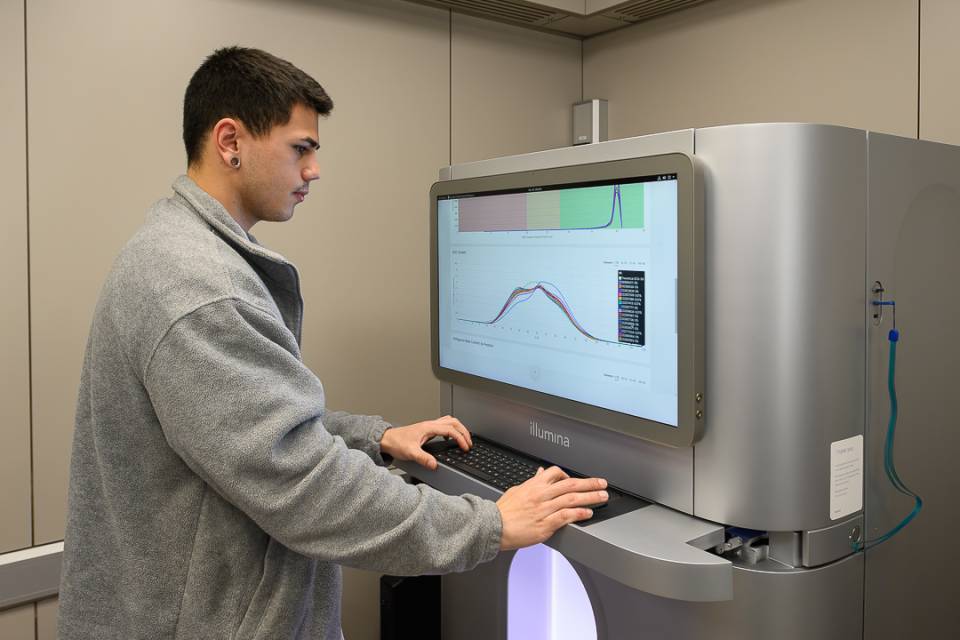The launch of the three models at the same time results from the effort of all the involved actors (companies, hospitals, research centers, university and administration). Thanks to the received donations from individuals, companies and civil society entities we can continue working on the prototypes’ development and industrial process.
The initiatives count on the support of the Catalan Health Service, which is propitiating the involvement of companies and supports the centers to find these solutions. Those projects that get the approval, will be distributed to the system as soon as possible according to the technical criteria and production capacity.
Xènia Acebes, director of the Assistance Area of the Catalan Health Service, highlights that "in this exceptional situation, the generated collective intelligence on having many agents elaborating new solutions has to allow us to cope successfully with the challenges we face in record time".
Emergency ventilators
The three designs aim to help the ventilation if there is a lack of conventional ventilators for those patients with serious breathing problems, such as the ones caused by COVID-19. The equipment enables the control of respiratory rate and other parameters in a constant and objective way. In addition, these ventilators provide patients with a vital support they would not receive otherwise. These are only considered for their transitory use in case of emergency and lack of an available conventional ventilator.
The three prototypes have passed the validation tests with simulators, carried out at the Faculty of Medicine and Health Sciences of the UB, in the Clinic Campus, under the supervision of Josep M. Nicolás, expert on intensive medicine in Hospital Clínic and lecturer at the Department of Medicine of the UB; Ramón Farré, professor of Physiology at the UB and head of the Respiratory biophysics and bioengineering group in IDIBAPS; and Manel Puig, from the Germans Trias i Pujol Research Institute and Hospital. These models are currently under validation phase in animals, tests that are carried out in the Centre for Comparative Medicine and Bioimaging of Catalonia (CMCiB) of the Germans Trias i Pujol Research Institute (IGTP), and there will be other control tests on patients under the authorization of the corresponding ethics committees.
“We are contributing to the creation of ventilators in case of a lack of conventional ventilators, and we provide our knowledge on the methodology of creation and calibration of devices”, notes Doctor Josep M. Nicolàs. Also, Ramón Farré highlights the coordination work: “We are working in coordination with several teams and institutions so as to get the equipment that enables us to offer an emergency solution for assisted respiration to the health system”.
Doctor Manel Puig highlights the “extraordinary and coordinated effort” on the emergency and the “knowledge and experience of many research agents of the Catalan system -in order to speed up all processes, keeping the guarantees, and getting the validations to reach the patients quickly”.
Last, David Priego, member of the Innovation Directorate in Germans Trias Hospital, notes that “we made advances in such a few time, ranging from an idea and several prototypes to products that can be real and can be used in the clinical practice”. “This was possible -he continues- thanks to the support and clinical advice of our experts on ventilation, the doctors Marc Fabra, Hipòlit Pérez and Pilar Ricart, from the Intensive Care Unit in Germans Trias and Dr Martí Pons, from the Intensive Care Unit in Sant Joan de Déu Hospital”.
Once the prototypes pass all validations, they will have to be approved of by the Spanish Agency of Medicines and Medical Devices. After that, these can be distributed around Spain.
The three models are:
-
OxyGEN-IP, designed by Protofy.xyz. It is an open hardware solution (software and plans available for free) which automates an AMBU device in an autonomous and mechanical way. It controls the respiratory rate, the current volume and inhale/exhale rate constantly and objectively. Its partners are ready to start mass production over the upcoming days.
-
Respira, launched by GPA Innova, assists automatically the manual ventilators. It allows real-time remote control on variables such as the rate and volume of air and oxygen the patient receives. Using a control station allows the management of up to 20 devices simultaneously through a wi-fi network.
-
D.A.R (Autonomous Breathing Equipment). Gas N2 has designed and created a prototype of invasive mechanical ventilator (VMI). The equipment assists the patients’ respiration and it is composed of industrial parts, among others, a pneumatic and instrumentation part, electric and electronic parts, control software on processing variables, screen monitoring and visual and audible alarms (VMI ventilator).
A solidarity campaign
Over the last days, there have been many donations to help develop and produce ventilators. This would not be possible without the support from the civil society. It is thanks to the involvement of individuals, companies, self-employed people, entities and administrations that we are in this project-development phase and that we can fund the production of the necessary equipment. All the involved entities want to express their appreciation for the received support.
Dr Josep M. Campistol, General Manager of Hospital Clínic de Barcelona notes that this is “a key project to fight the COVID-19 pandemic and it will be possible thanks to the received support”.




